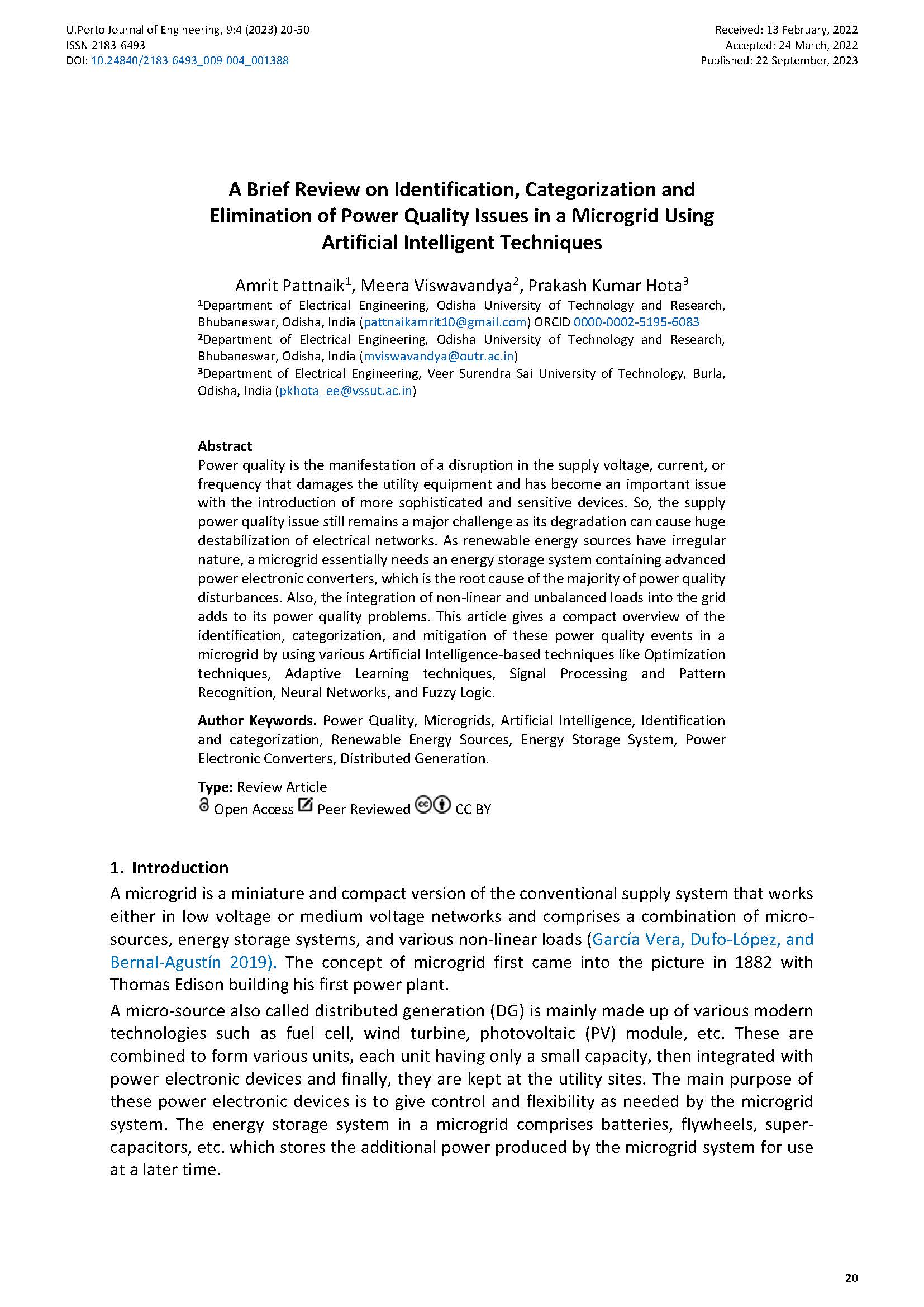A Brief Review on Identification, Categorization and Elimination of Power Quality Issues in a Microgrid Using Artificial Intelligent Techniques
Main Article Content
Abstract
Power quality is the manifestation of a disruption in the supply voltage, current or frequency that damages the utility equipment and has become an important issue with the introduction of more sophisticated and sensitive devices. So, the supply power quality issue still remains a major challenge as its degradation can cause huge destabilization of electrical networks. As renewable energy sources have irregular nature, a microgrid essentially needs energy storage system containing advanced power electronic converters which is the root cause of majority of power quality disturbances. Also, the integration of non-linear and unbalanced loads into the grid adds to its power quality problems. This article gives a compact overview on the identification, categorization and mitigation of these power quality events in a microgrid by using various Artificial Intelligence-based techniques like Optimization techniques, Adaptive Learning techniques, Signal Processing and Pattern Recognition, Neural Networks and Fuzzy Logic.
Downloads
Article Details

This work is licensed under a Creative Commons Attribution 4.0 International License.
Authors who publish with this journal agree to the following terms:
- Authors retain copyright and grant the journal right of first publication with the work simultaneously licensed under a Creative Commons Attribution License that allows others to share the work with an acknowledgement of the work's authorship and initial publication in this journal.
- Authors grant the journal the rights to provide the article in all forms and media so the article can be used on the latest technology even after publication and ensure its long-term preservation.
- Authors are able to enter into separate, additional contractual arrangements for the non-exclusive distribution of the journal's published version of the work (e.g., post it to an institutional repository or publish it in a book), with an acknowledgement of its initial publication in this journal.
- Authors are permitted and encouraged to post their work online (e.g., in institutional repositories or on their website) prior to and during the submission process, as it can lead to productive exchanges, as well as earlier and greater citation of published work (See The Effect of Open Access).

